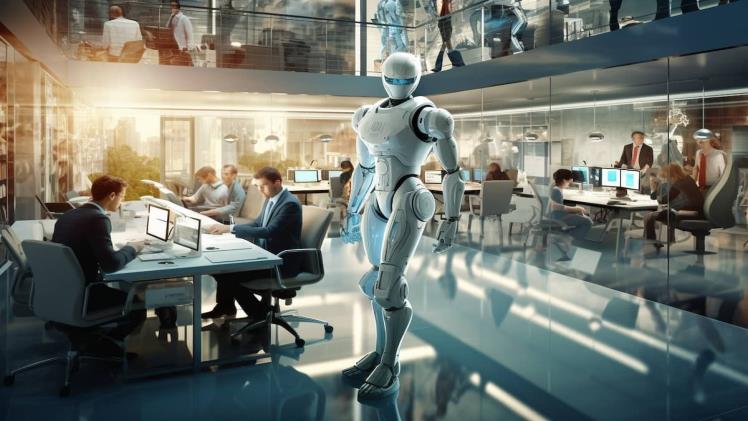Generative AI has taken the world by storm since its inception. Tools like ChatGPT have impacted every industry you can think of and information technology is no exception. With lower barrier to entry, faster speeds and ease of use, businesses can now accomplish the same tasks which used to take days in minutes sources, such as databases, iphone surveys, web scraping.
It is not only impacting the productivity of teams but also playing a pivotal role in plugging in those skills gaps. Not only that, it is all set to shake up the IT job market. How does generative AI impact the future of AI? That is exactly the question we will try to answer in this article based on studies and research.
In this article, you will learn about seven statistics that show how generative AI is impacting the IT job market and skill gap.
7 Statistics That Shows How Generative AI Is Impacting IT Job Market and Skill Gaps
Here are seven statistics that show you how generative AI is impacting the job market and skill gap in the IT industry.
1. 40% of C-suite executive will use generative AI tools To Fulfill Critical Skill Gap
According to a survey conducted by Kaspersky research, which included more than 2000 C-suite executives, 40% of them are using generative AI to overcome critical skill gaps. Majority of them are actively looking to automate tasks to reduce the burden on their existing workforce so they can focus on more value centric activities.
For generative AI tools, that’s a big achievement especially when you consider its penetration in such a small time frame. As the technology matures, we will see its new and more sophisticated use cases and applications emerge. Businesses will start to use it for things that they might have never thought about a few years back.
2. 95% of Respondents are Actively Discussing Ways To Maximize Value From Generative AI Tools
Generative AI is on top of the business agendas these days. A European study backs up those claims. Almost all (95%) the respondents are actively discussing ways to maximize value from generative AI technology. That’s not the surprising part because businesses want a higher return on investment from their technology investments whether it is a Seattle dedicated server or a new software they have recently bought. The real shocking aspect is that almost 92% of these respondents admitted that they don’t fully understand how generative AI works. Despite this, they know that it is important and are trying to develop their understanding and knowledge of generative AI.
David Emm, security researcher at Kaspersky summed it up brilliantly when he said, “It is important that senior management first develops a deeper understanding of the data management process. Knowing what can and cannot be used to train these AI models.”
3. 49% of Survey Respondents Said That Employees Are Already Automating Their Daily Tasks With Generative AI
Almost half (49%) of the survey respondents said that they have already started using generative AI in their daily tasks. Most of them are using generative AI to write and respond to emails, generate code and respond to customer questions. Education regarding generative AI is still limited amongst employees. This leaves them more vulnerable to cybersecurity attacks targeting generative AI systems.
4. 22% of C-Suite Executives Are Putting Rules In Place To Regulate Generative AI
Despite being the top business agenda and businesses eagerness to use generative AI, it is ironic to see only a meager 22% of C-suite care about developing rules to regulate generative AI. With no guardrails in place, generative AI’s traditional flaws such as hallucinations and risk of exposure of sensitive data and data errors all come to light.
It is critical to have security and legal guardrails in place along with specific policies catering to governance of generative AI to protect your business from such issues. All this is necessary in order to safely embrace generative AI.
5. Generative AI Will Replace 2.4 Million Jobs By 2030
Many people might have different opinions about this one. Some are afraid that generative AI will take their jobs while others argue that it will only act as your assistants instead of replacing your job. What does the data tell us? According to multiple research studies, generative AI will replace more than 2.4 million jobs by 2030 but it will also compensate for 30% of the jobs lost to automation by creating newer ones. Generative AI will reshape how many jobs operate and will completely change the way we work in the next few years.
6. 80% of Code Will Be Checked By AI In Next Five Years
According to a study conducted by Microsoft, generative AI tools like ChatGPT and Microsoft co-pilot can help you code 55% faster. Not only that, these tools are also great choices for checking code. In fact, most of the code that goes into GitHub repositories are now being checked by AI. This number will jump to 80% in the next five years.
This will shrink the software development lifecycle and help you create new software faster. Most businesses will even change their strategy and make AI a top priority. As far as their infrastructure foundation goes. This will be a huge departure from traditional infrastructure that we are accustomed to for the last five decades. Expect to see a major shift in IT strategies to accommodate artificial intelligence.
Which of these statistics surprised you and why? Share it with us in the comments section below.

